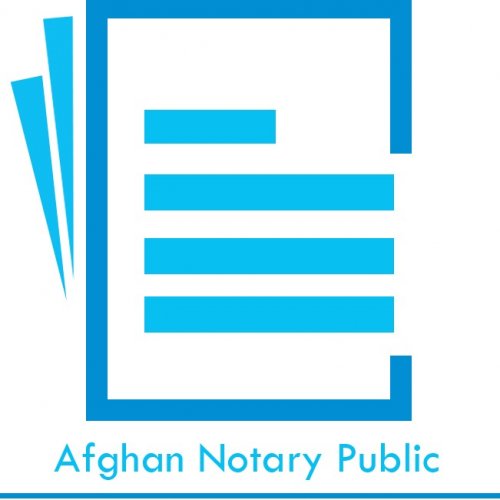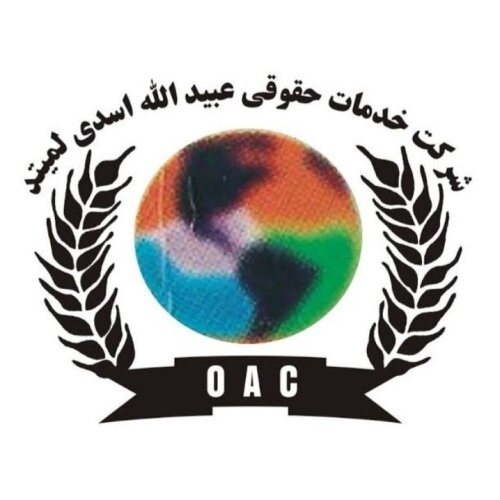Best Tax Increment Financing Lawyers in Afghanistan
Share your needs with us, get contacted by law firms.
Free. Takes 2 min.
Or refine your search by selecting a city:
List of the best lawyers in Afghanistan
About Tax Increment Financing Law in Afghanistan
Tax Increment Financing (TIF) is a public financing method that is used to subsidize community improvement projects. In Afghanistan, TIF is a relatively new concept aimed at stimulating economic development and urban rejuvenation. The government identifies a TIF district where increased property taxes resulting from rising property values are used to fund infrastructure improvements, public works, or redevelopment projects. This approach helps boost economic activities within the designated area while leveraging future gains to pay for current improvements.
Why You May Need a Lawyer
Navigating the complexities of Tax Increment Financing can be challenging, and there are several instances where legal counsel may be necessary. Some common reasons include:
- Understanding the regulatory framework and compliance requirements associated with TIF in Afghanistan.
- Assisting municipalities or private entities in establishing a TIF district and preparing necessary documentation.
- Advising on the financial aspects and tax implications for businesses and developers involved in TIF projects.
- Representing stakeholders in disputes or negotiations related to TIF agreements.
- Ensuring projects align with broader legal and environmental standards.
Local Laws Overview
In Afghanistan, the governance of TIF involves an intricate interplay of local laws, regulatory statutes, and municipal guidelines. Key aspects include:
- TIF districts must be officially designated by local governments in accordance with national development strategies.
- Funds generated through TIF are typically earmarked for specific development projects and infrastructure improvements within the district.
- Regular audits and compliance checks are conducted to ensure transparency and accountability in the use of TIF funds.
- Public consultation and stakeholder engagement are required throughout the planning and implementation phases of TIF projects.
- Legal mechanisms are in place to address grievances and disputes related to TIF agreements.
Frequently Asked Questions
What is the main purpose of TIF in Afghanistan?
The main purpose of TIF is to stimulate economic development within designated areas by using future tax increments to finance current improvements in infrastructure and public services.
How is a TIF district established?
A TIF district is established through a proposal by local governments, which is then approved following public consultations and alignment with national development goals.
Who benefits from TIF projects?
Benefits extend to local communities, private developers, and municipal governments as infrastructure improvements lead to increased property values and economic activities.
What types of projects are typically funded by TIF?
TIF funds are commonly used for projects such as road improvements, public utilities upgrades, environmental remediation, and the development of public amenities.
How is TIF different from other forms of public financing?
Unlike other public financing methods, TIF uses the additional taxes generated from increased property values within the district to fund improvements, rather than relying on new taxes or state funding.
Are there risks associated with TIF?
Yes, risks can include project underperformance, misallocation of funds, and increased financial burden on municipalities if projected increments do not materialize.
Can businesses or property owners object to a TIF district?
Yes, through the public consultation process, stakeholders can raise concerns and objections, which must be addressed before the district is approved.
What role do local governments play in TIF?
Local governments are responsible for designating TIF districts, overseeing project execution, ensuring compliance, and managing the allocation of TIF funds.
Is public awareness necessary for TIF projects?
Yes, public awareness is crucial to ensure transparency, garner support, and encourage community involvement in the TIF process.
How can mismanagement of TIF funds be prevented?
Through stringent regulatory oversight, regular audits, clear guidelines, and accountability measures, mismanagement can be minimized.
Additional Resources
For more information and resources on Tax Increment Financing in Afghanistan, consider reaching out to the following:
- The Afghanistan Ministry of Urban Development and Land for guidelines on urban planning and TIF policies.
- Local municipal offices for specific information about TIF districts and ongoing projects in your area.
- Legal experts specializing in finance and public policy for tailored advice and representation.
- Community groups and local business associations for support and advocacy related to TIF initiatives.
Next Steps
If you are considering legal assistance for issues related to Tax Increment Financing, consider the following steps:
- Identify specific legal needs and concerns you may have regarding a TIF project.
- Research and contact qualified legal professionals with expertise in Afghan TIF regulations and development projects.
- Prepare any relevant documentation and questions ahead of your consultation to maximize the value of the discussion.
- Engage with community and professional networks to gather recommendations and insights.
- Stay informed about local TIF projects and developments to ensure alignment with your legal needs and interests.
Lawzana helps you find the best lawyers and law firms in Afghanistan through a curated and pre-screened list of qualified legal professionals. Our platform offers rankings and detailed profiles of attorneys and law firms, allowing you to compare based on practice areas, including Tax Increment Financing, experience, and client feedback.
Each profile includes a description of the firm's areas of practice, client reviews, team members and partners, year of establishment, spoken languages, office locations, contact information, social media presence, and any published articles or resources. Most firms on our platform speak English and are experienced in both local and international legal matters.
Get a quote from top-rated law firms in Afghanistan — quickly, securely, and without unnecessary hassle.
Disclaimer:
The information provided on this page is for general informational purposes only and does not constitute legal advice. While we strive to ensure the accuracy and relevance of the content, legal information may change over time, and interpretations of the law can vary. You should always consult with a qualified legal professional for advice specific to your situation.
We disclaim all liability for actions taken or not taken based on the content of this page. If you believe any information is incorrect or outdated, please contact us, and we will review and update it where appropriate.
Browse tax increment financing law firms by city in Afghanistan
Refine your search by selecting a city.











